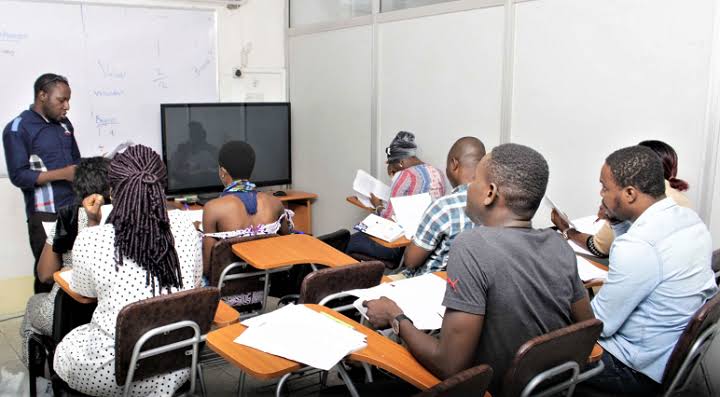Preparing for Your Study Abroad Journey: What You Need to Know

Studying abroad is a life-changing experience that opens doors to new cultures, academic opportunities, and global connections. However, the process can feel overwhelming without proper planning. Whether you’re heading to Europe, North America, Asia, or beyond, being well-prepared ensures a smoother transition and an enriching experience.
In this guide, we’ll dive into preparing for your study abroad journey: what you need to know; covering everything from paperwork and packing to cultural adjustments and financial planning.
1. Research Your Destination Thoroughly
When preparing for your study abroad journey: what you need to know, the first step is to research your destination thoroughly. Understanding the academic culture, climate, and local customs helps you adjust quickly.
Key Areas to Research:
- University Policies: Admission requirements, grading system, and course structure.
- Culture & Language: Basic phrases if the language is different, local etiquette, and cultural norms.
- Climate: Seasonal weather patterns to plan your wardrobe.
Pro Tip: Join online forums or social media groups to connect with current international students for first-hand insights.
2. Understand Visa and Immigration Requirements
A critical part of preparing for your study abroad journey: what you need to know is ensuring your visa and immigration documents are in order. Each country has specific requirements, so start early to avoid last-minute stress.
Visa Application Checklist:
- Acceptance Letter: From your host university.
- Financial Proof: Evidence of funds to cover tuition and living expenses.
- Valid Passport: Ensure your passport is valid for at least six months beyond your stay.
Pro Tip: Keep both physical and digital copies of your visa and other essential documents.
3. Financial Planning and Budgeting
Effective financial management is key when preparing for your study abroad journey: what you need to know. International education can be expensive, but careful budgeting helps you stay on track.
Financial Planning Tips:
- Create a Budget: Include tuition fees, accommodation, daily expenses, and emergency funds.
- Scholarships & Grants: Apply for financial aid programs to offset costs.
- Open a Local Bank Account: It’s easier to manage finances and avoid high international transfer fees.
Pro Tip: Research if your destination allows part-time work for international students to support your expenses.
4. Health Insurance and Medical Preparations
Another critical aspect of preparing for your study abroad journey: what you need to know is ensuring your health and safety. Most countries require international students to have health insurance coverage.
What to Do:
- Buy Health Insurance: Confirm if your host university provides coverage or if you need to arrange it.
- Medical Check-Up: Complete required vaccinations and carry your medical records.
- Emergency Contacts: Know local emergency numbers and your embassy’s contact details.
Pro Tip: Carry a small first-aid kit with medications you might not find easily abroad.
5. Accommodation: Finding a Home Away from Home
Securing comfortable accommodation is essential in preparing for your study abroad journey: what you need to know. Your choice depends on your budget, preferences, and the university’s housing policies.
Housing Options:
- On-Campus Housing: Convenient but may be more expensive.
- Off-Campus Housing: Offers independence but requires early search.
- Homestay: Ideal for cultural immersion and language practice.
Pro Tip: Use trusted platforms like your university’s housing office or verified rental websites to avoid scams.
6. Packing Smart: Essentials for Your Study Abroad Journey
When preparing for your study abroad journey: what you need to know, packing strategically can make your transition smoother. Avoid overpacking and prioritize essentials.
What to Pack:
- Documents: Passport, visa, university acceptance letter, and insurance papers.
- Electronics: Universal power adapter, laptop, and phone.
- Clothing: Weather-appropriate attire and cultural considerations.
Pro Tip: Leave space in your luggage for items you may want to bring back home.
7. Adapting to a New Academic Environment
Understanding the academic culture is crucial in preparing for your study abroad journey: what you need to know. Different countries may have unique classroom dynamics and expectations.
Academic Tips:
- Attend Orientation: It helps you understand university systems and meet peers.
- Time Management: Balance coursework, social activities, and rest.
- Seek Help: Utilize academic support services for tutoring and guidance.
Pro Tip: Stay organized with a planner or digital calendar to track deadlines and exams.
8. Building a Social Network and Cultural Adjustment
Social integration is a major part of preparing for your study abroad journey: what you need to know. Building friendships and understanding local culture eases homesickness.
Social Integration Strategies:
- Join Student Organizations: Connect with like-minded peers.
- Cultural Exchange Programs: Participate in events that promote cross-cultural learning.
- Stay Open-Minded: Embrace differences and new experiences.
Pro Tip: Make friends from diverse backgrounds to enrich your global perspective.
9. Managing Homesickness and Mental Health
Caring for your mental well-being is an important part of preparing for your study abroad journey: what you need to know. Being in a new environment can be challenging, but there are ways to cope.
Mental Health Tips:
- Stay Connected: Keep in touch with loved ones through video calls.
- Seek Support: Utilize university counseling services.
- Self-Care: Maintain a healthy lifestyle with balanced nutrition and regular exercise.
Pro Tip: Journal your experiences—it helps process emotions and reflect on your journey.
10. Preparing for Your Return Home
While the focus is on arrival, a smooth re-entry is equally important when preparing for your study abroad journey: what you need to know. Reverse culture shock is real, and preparation helps.
What to Consider:
- Credit Transfer: Ensure your coursework is recognized by your home university.
- Career Planning: Use your international experience to enhance your resume.
- Stay Connected: Maintain relationships with friends and professors abroad.
Pro Tip: Document your study abroad experience to share insights with future travelers.
Conclusion
Preparing for your study abroad journey: what you need to know involves careful planning, from understanding visa requirements to adapting to new cultures. With proper preparation, your study abroad experience can be enriching and transformative.
Are you getting ready for your study abroad adventure? Share your questions and experiences in the comments below—we’d love to hear from you!




